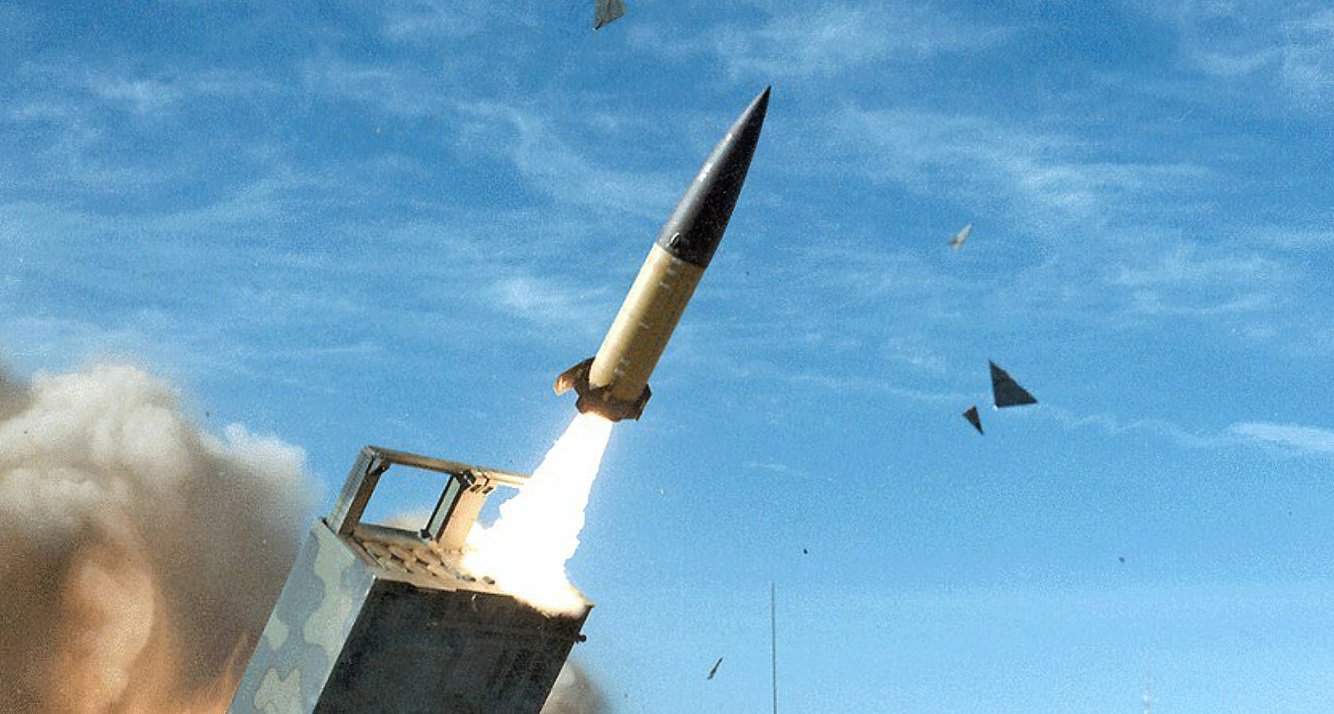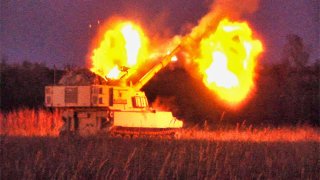The ATACMS Dilemma
In response to an alleged Ukrainian attack using U.S.-made ATACMS missiles on Russian territory, Russian President Vladimir Putin has revised Russia's nuclear doctrine. The updated policy lowers the threshold for nuclear retaliation, allowing for nuclear strikes in response to conventional attacks on Russian soil, especially those supported by a nuclear power like the United States.
What You Need to Know: In response to an alleged Ukrainian attack using U.S.-made ATACMS missiles on Russian territory, Russian President Vladimir Putin has revised Russia's nuclear doctrine. The updated policy lowers the threshold for nuclear retaliation, allowing for nuclear strikes in response to conventional attacks on Russian soil, especially those supported by a nuclear power like the United States.

-The Kremlin warns that any conventional attack using missiles, drones, or aircraft could be considered justification for a nuclear response.
-While it remains uncertain whether Russia would initiate a nuclear exchange over such incidents, the revision raises concerns about escalating tensions and the potential risks of nuclear conflict. The article suggests that greater caution is needed to avoid giving Russia reasons to adhere to its stated nuclear doctrine.
Russia Updates Nuclear Doctrine After Alleged Ukrainian ATACMS Strike
In response to an alleged Ukrainian ATACMS attack in western Russia, the Kremlin has updated its nuclear weapons doctrine, “to allow for nuclear strikes in response to foreign ballistic missile attacks.” The updated doctrine threatens, in essence, to offer a nuclear retaliation should Ukraine attempt another ATACMS strike on Russian soil.
But would Russian President Vladimir Putin initiate a nuclear exchange? Or are the Russians bluffing as a deterrence tactic?
The ATACMS Strike
For the first time, Ukraine has fired U.S.-made long-range ATACMS missiles into Russia. The attack comes after U.S. President Biden lifted restrictions against how the U.S.-donated missiles could be used, previously prohibiting strikes on Russian soil.
According to the Russian defense ministry, Ukraine launched six ATACMS targeting an ammunition warehouse in the Bryansk region. Ukraine did not confirm nor deny the launch; Ukrainian president Volodomyr Zelenskyy said only that, “we now have ATACMS, Ukrainian long-range capabilities, and we will use them.”
Ukraine claims to have hit a Russian military arsenal of the 1046th logistics center outside Karachev. Russia, meanwhile, claims to have shot down five of the six ATACMS while damaging the sixth, and that the debris from the damaged missiles caused a fire.
Russia has blamed the Americans, in part, for the attacks. “Without the Americans, it is impossible to use these hi-tech missiles,” Russia’s foreign minister, Sergei Lavrov, said.
The question now is: how will Russia retaliate?
A Revised Nuclear Doctrine
Biden’s decision to allow Ukraine to use U.S.-made missiles against Russian soil prompted Putin to revise Russia’s nuclear doctrine, lowering the threshold for using nuclear weapons.
“Russia’s revised nuclear doctrine declares that a conventional attack on Russia by any nation that is supported by a nuclear power will be considered a joint attack on [Russia],” The Guardian reported. “The doctrine, which outlines the conditions under which Russia’s leadership might consider launching a nuclear strike, also states that an attack using conventional missiles, drones or other aircraft could be seen as justification for a nuclear response.”
After Putin signed the revision, the Kremlin was clear: the revision served to warn enemies of the potential consequences of attacking Russia directly.
So, is Russia bluffing?
Would Putin initiate a nuclear exchange over a conventional weapons strike within Russian territory? The chances are slim. But the chances are higher than zero, and that’s too high; any non-zero chance of nuclear war ought to be weighed with the utmost respect. Nuclear escalation has been a concern throughout the conflict, but the revised nuclear doctrine, seemingly in direct response to a U.S. policy change, and a corresponding Ukrainian attack, serves as the starkest warning for nuclear war yet.
Ukraine has every right to defend itself, of course. But the upside of launching conventional attacks against targets within Russia’s territory doesn’t seem to outweigh the potential downsides of receiving a nuclear attack. From the American perspective, the upsides are hard to define; greater care should be taken to avoid nuclear war; and no excuses should be given to the Russians to adhere to their clearly stated nuclear doctrine.
About the Author: Harrison Kass
Harrison Kass is a defense and national security writer with over 1,000 total pieces on issues involving global affairs. An attorney, pilot, guitarist, and minor pro hockey player, Harrison joined the US Air Force as a Pilot Trainee but was medically discharged. Harrison holds a BA from Lake Forest College, a JD from the University of Oregon, and an MA from New York University. Harrison listens to Dokken.
Image Credit: Creative Commons and/or Shutterstock.


